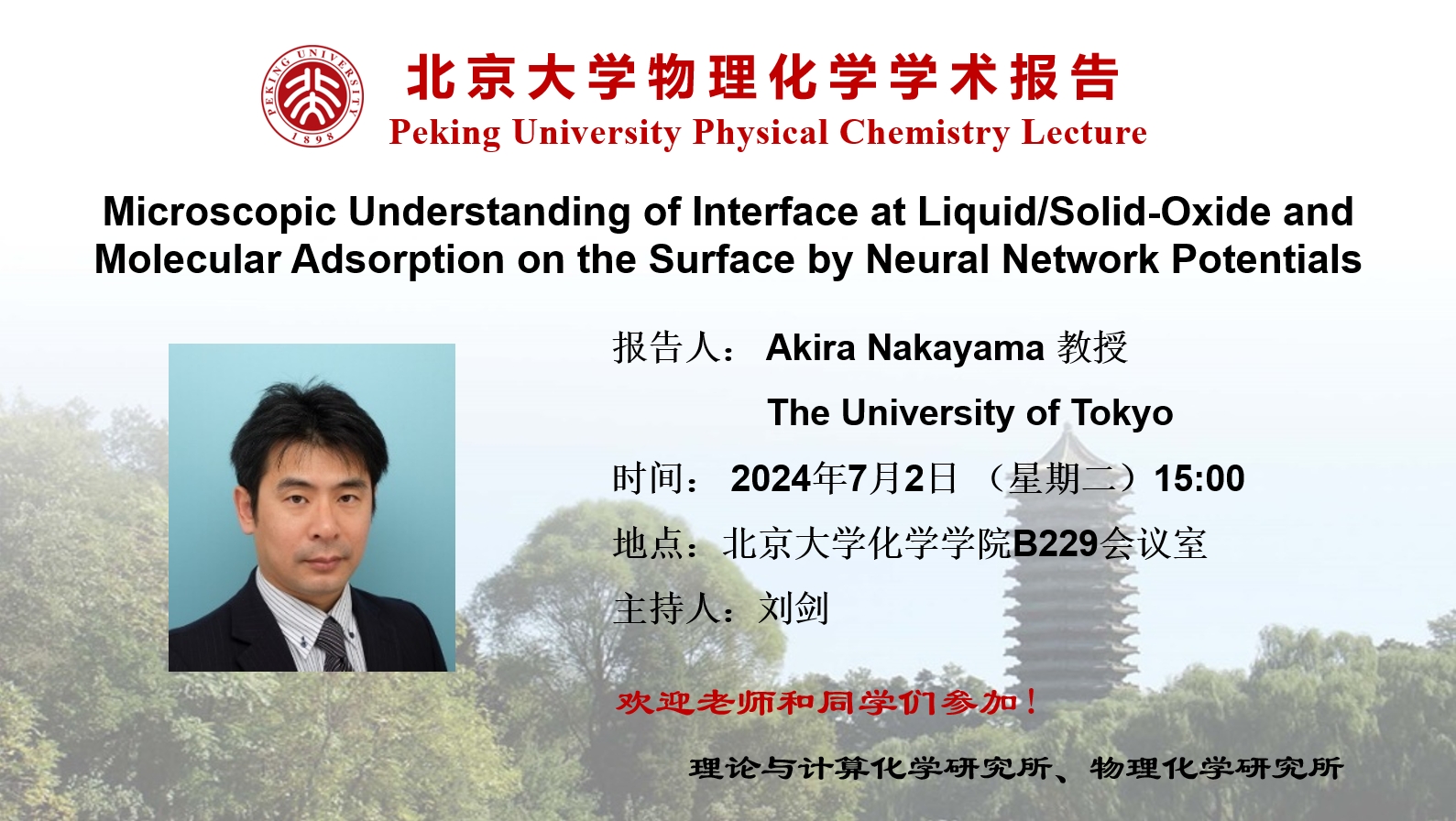
Abstract
The rise of neural network potentials (NNP) for interatomic interactions has enabled atomistic simulations of complex systems with unprecedented system sizes and long simulation times. The NNP provides a reliable description of interatomic interactions for various types of bonding with high fidelity, and by efficiently acquiring and adaptively updating training data, usually obtained by the first-principles calculations such as DFT, the NNP-based simulations are becoming a versatile tool for investigating the microscopic structure and dynamical behavior of various systems.
We present our recent works using NNP on the following topics.
(i)Long-range proton and hydroxide ion transfer dynamics at the water/CeO2 interface in the nanosecond regime: reactive molecular dynamics simulations and kinetic analysis.[1]
(ii)On-the-fly kinetic Monte Carlo simulations for surface diffusion and reaction. [2]
(iii)Grand canonical Monte Carlo simulations for adsorption of hydrogen atoms on metal surfaces and single-atom alloys. [3,4]
[1] T. Kobayashi, T. Ikeda, and A. Nakayama, Chem. Sci. 15, 6816 (2024).
[2] T. Yokaichiya, T. Ikeda, K. Muraoka, and A. Nakayama, J. Chem. Phys. 160, 204108 (2024).
[3] T. Ikeda and A. Nakayama (submitted)
[4] T. Kanno, T. Ikeda, and A. Nakayama (in preparation).
Biography
Akira Nakayama received his Ph.D. in Department of Chemical System Engineering from the University of Tokyo in 2001. He was a postdoctoral fellow at the University of Illinois at Urbana-Champaign, working with Professor Nancy Makri. In 2005, he joined the faculty of Hokkaido University, where he was awarded the Young Investigator Encouragement Award from Hokkaido Branch of the Chemical Society of Japan in 2014. He is currently a Professor in Department of Chemical System Engineering in The University of Tokyo. He focuses on the development of computational tools for the microscopic understanding of the chemical processes based on the electronic structure theory, reaction dynamics, and statistical mechanics. He is primarily interested in the design of chemical reactions and materials related to environmental and energy issues.